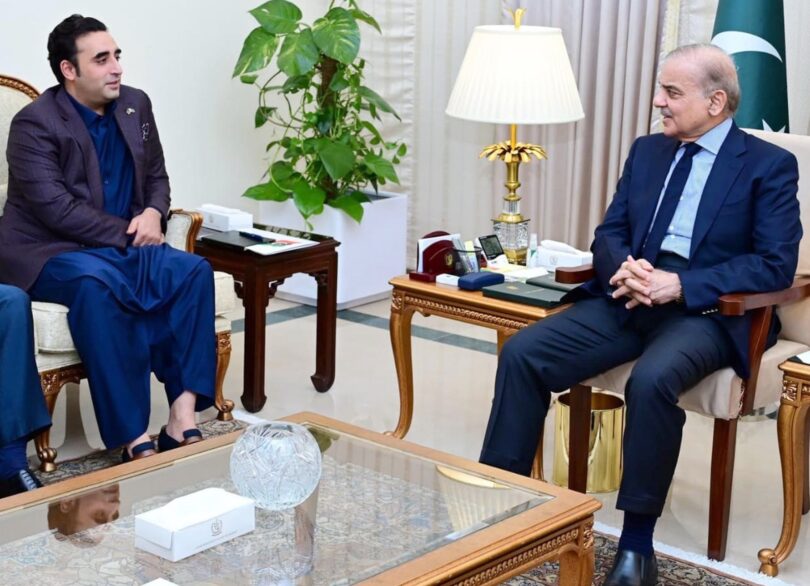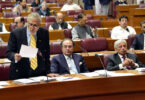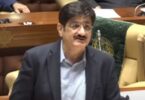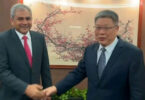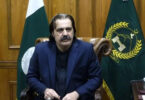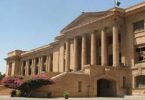F.P. Report
ISLAMABAD: A Pakistan Peoples Party (PPP) delegation led by its Chairman Bilawal Bhutto Zardari Thursday met Prime Minister Muhammad Shehbaz Sharif, and discussed political affairs and the budget 2024-25.
The PPP delegation included Senate Chairman Yusuf Raza Gillani, Raja Pervaiz Ashraf, Syed Khurshid Shah, Syed Naveed Qamar and Sherry Rehman. The meeting was held in a positive atmosphere, with both sides agreeing on the need for collaboration to address the challenges faced by the country.
The prime minister highlighted that the macroeconomic indicators with regard to the country’s economy were showing encouraging growth while historic boom in the stock market was the endorsement of the government’s budget by the business community. He said all political parties should work together for the country’s development, prosperity and public welfare.
He said that in the budget 2024-25, steps were taken to provide maximum relief to the people. It was agreed in the meeting that further consultation would continue through parliamentary committees. The meeting was also attended by National Assembly Speaker Sardar Ayaz Sadiq, Deputy Prime Minister and Foreign Minister Ishaq Dar, Planning Minister Ahsan Iqbal, Finance Minister Muhammad Aurangzeb, Information Minister Attaullah Tarar, Advisor to PM on Political Affairs Rana Sanaullah, Minister of State for Finance Ali Pervaiz Malik and former federal minister Khawaja Saad Rafique.
Education emergency shows government’s seriousness in education sector: Prime Minister Muhammad Shehbaz Sharif expressing the government’s resolve to promote education in the country said that imposing education emergency in Pakistan showed how the government was serious in promoting this sector.
He said the government was taking steps to increase the capacity of the country’s youth through the use of modern technology. He was talking to a high level delegation of Google for Education led by its Managing Director Kevin Kells. The delegation comprised of Google for Education representatives from eight countries.
The prime minister told the delegation that the government was providing laptops to the brilliant students from remote areas of the country. For this scheme, he said the required amount had already been allocated in the budget 2024-25. He pointed out that the scope of Danish Schools was being expanded to the less developed areas of Islamabad, Gilgit-Baltistan, Azad Jammu & Kashmir, Balochistan and Khyber Pakhtunkhwa.
The prime minister welcoming the Google’s decision to establish manufacturing plants of chromebooks in Pakistan, appreciated the signing of letter of intent between Google for Education and Ministry of the Federal Education to promote education in Pakistan.
He invited Google for Education to expand its scope of cooperation with government of Pakistan. Being briefed on Google for Education’s initiatives to promote education and training in Pakistan, the prime minister was told that Google was working on “Digital Journey” for education, and ‘Digital Safety’, especially digital safety program for children.
Google for Education and the National Rural Support Program are working together to promote digital skills and protection in rural areas while under ‘Balochistan First and Gilgit-Baltistan First’ programs, training has been provided to thousands of youth regarding digital skills and security, the meeting was informed.
The prime minister was further informed that the number of out-of-school children would be reduced with the help of artificial intelligence whereas Google for Education would provide artificial intelligence training in key national languages of Pakistan. Google for Education also offered to make Danish School under construction in Islamabad a Google Center of Excellence.
The prime minister was told that Google for Education organized training programs for teachers in collaboration with the Punjab government and last year, Google for Education gave 45 thousand certificates in Pakistan. The meeting was also attended by Minister for Federal Education and Professional Training Khalid Maqbool Siddiqui, Minister of State for Information Technology Shaza Fatima Khawaja and relevant high officials.
Shehbaz visits revamped NEOC; says NDMA to become a safety wall for Pakistan: Prime Minister Shehbaz Sharif, lauding the revamped National Emergencies Operation Center (NEOC) equipped with multiple satellite feeds and artificial intelligence tools, expressed the hope that the National Disaster Management Authority (NDMA) would prove to be a safety wall for Pakistan against the impacts of the climate change.
“Due to climate change, Pakistan is in the red zone and among the top ten vulnerable countries. We should not lose our morale rather work hard. After this achievement, I have no doubt that the NDMA, in coordination with provincial PDMAs, will become a safety wall for Pakistan,” the prime minister said during his visit to the NEOC here along with the federal ministers and secretaries. This was the maiden visit of the prime minister since the revamped NEOC was inaugurated in October last year.
He highly appreciated NDMA Chairman Lt Gen Inam Haider Malik for realising his dream of focusing on the capacity building and human resource development of the Authority instead of an earlier planned project of building an office tower.
Referring to his previous meetings following the floods of 2022, the prime minister said he had suggested the NDMA chief to prioritise the the capacity building of the organisation by equipping it with the latest technology, input from the provinces and recruitment of permanent human resources, besides establishing a digital hub.
“Today, the way that dream has been realised deserves applause. I don’t think any province has achieved such capacity with the world-class systems. I am happy that instead of a highrise building, you invested in this digital hub,” the prime minister remarked. He said the 2022 floods had inflicted a $30 billion loss to the country which would take years to overcome as the Federal Government alone had spent Rs 100 billion for the rehabilitation of affected population, besides the funding from provinces as well as aid from the friendly countries.
He said consequent to the efforts by that time Climate Change Minister Sherry Rehman, Foreign Minister Bilawal Bhutto Zardari and other federal and provincial organisations, the country was able to rehabilitate millions of people. Prime Minister Shehbaz appreciated the merit-based induction of quality human resource and establishing a third-party validation mechanism at the NMDA, and assured of the government’s support and funding for the staffers’ training and procurement of equipment.
“This is not normal. This is not usual. This is far above normal and usual,” he said and asked the federal ministers and secretaries to follow the role model to make Pakistan a great nation. He asked the NDMA to ensure close coordination with the provinces, including Gilgit-Baltistan and Azad Jammu & Kashmir, and advised the procurement of equipment through coordination to avoid duplication.
“This is not an expenditure. This is an investment to save our future investments,” he remarked. He told the gathering that the Federal Government had allocated Rs 80 billion for the promotion of information technology, besides signing an agreement with Huawei for training of 300,000 Pakistani youngsters in IT (Information Technology) annually.
The prime minister highly applauded the genesis of NEOC with the cutting-edge technology and team NDMA for actualizing the first of its kind centre in Pakistan and region which was a testament to Pakistan’s commitment for disaster readiness and mitigation. NDMA Chairman Lt Gen Inam Haider Malik briefed the prime minister about capabilities of the NEOC, enabled by multiple satellite feeds, softwares and artificial intelligence tools, to generate a National Common Operating Picture (NCOP), strengthening digital risk assessment, early warning systems and preparedness strategies for Pakistan.
The briefing also highlighted the NEOC’s capability to forecast weather patterns six to ten months in advance not only at national but regional level also. The chairman elaborated on the modus operandi of NDMA, and highlighted how the NEOC served as a hub for emergency response and coordination among PDMAs, DDMAs, relevant ministries/departments and other pertinent stakeholders including domestic-International humanitarian partners ensuring swift and effective response during all phases of disasters specifically pre disaster stage.
During the briefing, the NDMA’s newly developed mobile application aimed to empower individuals and communities with vital information to effectively prepare for and respond to potential disasters was also showcased. The prime minister was accompanied by the cabinet members including Deputy Prime Minister and Foreign Minister Ishaq Dar, Information Minister Attaullah Tarar, Industries Minister Rana Tanveer Hussain, and Petroleum Minister Dr Musaddik Malik, Advisor to PM Rana Sanaullah, and PM’s coordinators Romina Khurshid Alam and Dr Mukhtar Ahmed.

